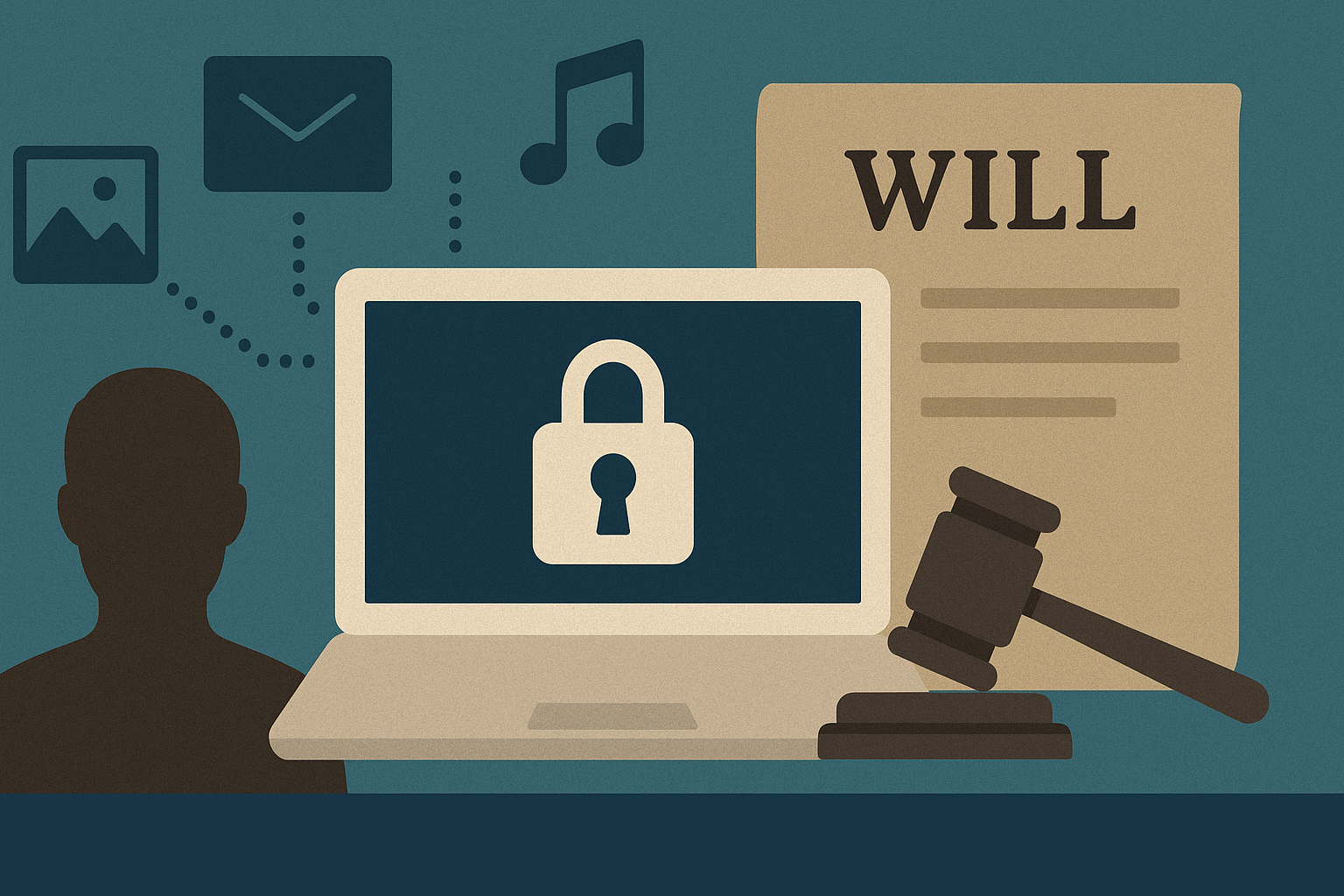Estate planning is complicated in the best of times, but digital assets can make it even more so. These assets are something of a new frontier, and they deserve the same careful planning as any other part of your estate. An experienced Killeen estate planning attorney can help you address your digital assets in your will to ensure nothing is left to chance.
A Legal Framework for Handling Digital Assets
You may have more digital assets than you realize. Over the past two decades, many of us have shifted much of our lives online. As a result, we've built a significant collection of digital accounts and information.
Texas adopted the Revised Uniform Fiduciary Access to Digital Assets Act (RUFADAA) in 2017. This law allows the executor of your estate or your estate planning lawyer to access your online accounts after your death. However, even with this legal framework, digital assets may not be fully protected unless your will explicitly addresses them.
A Three-Tiered Approach
RUFADAA uses a three-tiered system for handling digital assets:
Tier One
Tier one includes platforms that allow users to set their own rules about what happens to their accounts upon death. Services like Google, Facebook, and Apple offer legacy tools that let you assign access rights in advance.
There are also digital asset management (DAM) platforms that help you organize and plan for these assets.
Tier Two
If no legacy settings are in place, the next step is your estate plan. Including digital assets in your will allows you to control what happens to them after your death.
Tier Three
If neither of the first two tiers apply, your executor must follow the platform's terms of service. These agreements can be restrictive and difficult to navigate, which is why proactive planning is so important.
What Counts as a Digital Asset?
Your digital estate includes more than just your email or social media. Common examples include:
Social media accounts
Email accounts
Online banking and e-commerce accounts
Cloud photo and video storage
Smartphone apps
Online utility accounts (e.g., electricity, internet, cable)
Blogs and digital publications
Loyalty programs (e.g., airline miles, credit card points)
Intellectual property (text, audio, design files)
Online gaming profiles
Cryptocurrency wallets and keys
Be aware that while a bank account accessed online is not a digital asset, the cryptocurrency in a digital wallet is.
Every one of these accounts is password-protected and governed by a terms of service agreement, which often makes them hard to manage after your death without a clear legal plan.
If you have important digital assets you’d like to protect in your will, contact a Killeen estate planning attorney. He or she can help you navigate the complexities of passing down your accounts.
What Happens to Online Accounts When You're Gone?
If your will doesn’t mention your digital assets, your loved ones could face significant obstacles:
Executors may struggle to access critical accounts.
Valuable assets, like cryptocurrency, could be lost.
Irreplaceable photos and videos could be inaccessible.
Social media profiles might remain active and unmonitored.
Including access instructions in your estate plan helps prevent these complications.
How to Prepare Your Digital Estate
Follow these steps to manage your digital assets effectively. Your skilled Killeen estate planning attorney will help you navigate the process.
1. Create a Digital Inventory
Start by listing all your digital accounts and assets. Include:
Website URL
Account name
Associated email or phone number
Username
Password (stored securely elsewhere)
Security questions and answers
Notes about value or purpose
Keep your inventory updated and organized. Store passwords separately and securely, and make sure your executor knows how to access them.
2. Use a Password Manager
Password managers can store your credentials securely and often include legacy access features. This allows a trusted person to access your accounts if you pass away.
3. Address Digital Assets in Your Will
It's not enough to create an inventory. You must authorize someone to manage these assets legally.
You can:
Name your estate executor to manage them
Appoint a separate digital executor, especially if he or she is more tech-savvy
Instruct your digital executor on how to handle each account. Some may be deleted; others may be archived or transferred.
4. Don't Include Passwords in the Will
Wills become public during the probate process, so never include sensitive login information. Instead, indicate where this information is stored and how your executor can access it.
5. Consider Naming a Digital Power of Attorney
In Texas, you can assign someone power of attorney over your digital assets in case of incapacity. This must be done in writing and gives them legal authority to act on your behalf.
6. Use Available Legacy Tools
If a platform offers a legacy feature, take advantage of it:
Facebook: Assign a legacy contact
Apple: Add a digital legacy contact
Google: Use the Inactive Account Manager
Note: In Texas, the platform’s legacy terms may override your will, so review these settings regularly to ensure they align with your wishes.
Talk to a Killeen Estate Planning Lawyer Today
You don’t have to manage your digital estate alone. An experienced Killeen estate planning attorney can help you incorporate your digital assets into your will and avoid common pitfalls.
Brett Pritchard at the Law Office of Brett H. Pritchard is here to guide you every step of the way. Contact us online or call (254) 781-4222 for a FREE consultation today.







